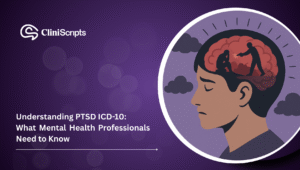Technically Reviewed By Nauman Jaffar
Therapies That Lack Evidence: Which Methods Are Not Backed by Science?
In the world of mental health and healthcare, therapies must be rooted in evidence to ensure that patients receive the most effective care. Yet, some therapies remain popular despite lacking scientific backing. Which therapy is not supported by evidence, and how do you know when a treatment isn’t delivering results?
In this blog, we’ll explore therapies that have been discredited, outdated methods that aren’t effective anymore, and non-evidence-based treatments that you might want to be cautious about. Understanding these therapies can help you make informed decisions and avoid unproven treatments.
Which Therapy Is Not Supported by Evidence?
While many therapies have proven efficacy, some have been found to lack substantial scientific support. Here are a few therapies that have been flagged as ineffective:
-
Phage Therapy: While phage therapy was once considered a breakthrough for treating bacterial infections, it’s not commonly used today. Why is phage therapy not used in mainstream medicine anymore? The main issue is that it’s still not fully understood and lacks widespread evidence for efficacy.
-
Gene Therapy: Despite the excitement surrounding gene therapy, why is gene therapy not used much today? Although gene therapy shows potential, it’s not as widely implemented due to safety concerns and lack of enough data supporting its long-term effectiveness.
-
Stem Cell Therapies: Why are stem cell therapies not more common? These treatments promise great potential, but they still lack a solid foundation of scientific evidence, particularly when it comes to human applications. Many stem cell therapies remain unregulated and unproven.
Outdated or Discredited Therapies You Should Know About
Some therapies once considered groundbreaking have now been discredited or deemed ineffective. Here’s a look at therapies that have fallen out of favor due to lack of scientific backing:
-
Behavior Therapy Myths: One common question is, “Which of the following is not true of behavior therapy?” While behavior therapy has been successful in many contexts, some aspects, like aversion therapy, have been criticized for ethical reasons and lack of lasting results. It’s essential to understand the limitations of this therapy.
-
Insight Therapies: Therapies like insight-oriented therapy have also faced scrutiny. Which of these is not an insight therapy? Some treatments that promise deep emotional insight don’t always yield results in real-world settings and lack the research support to justify their effectiveness.
-
Cognitive Therapy Techniques: Which of the following is not a cognitive therapy technique? Cognitive Behavioral Therapy (CBT) is one of the most widely used and evidence-based approaches, but some older methods like Rational Emotive Behavior Therapy (REBT) aren’t as effective for certain patients due to lack of evidence-based improvements over time.
When Therapy Is Not Helping: Understanding the Reasons
Many patients may ask themselves, “Why is therapy not working for me?” If therapy isn’t yielding results, it could be due to several factors:
-
Unrealistic Expectations: Therapy notes are essential for tracking patient progress, but some people expect quick fixes. Therapy often requires time, patience, and active participation.
-
Lack of Emotional Readiness: If a patient isn’t emotionally ready, even the most evidence-based therapies may not work. Therapy requires active engagement, and if someone isn’t ready to face their challenges, progress may be limited.
-
Inappropriate Therapy Type: Sometimes, the therapy doesn’t align with the patient’s needs. Why therapy may not work for certain individuals is simply that the wrong approach was chosen. For example, therapy aid techniques like exposure therapy may not work for someone with severe anxiety disorders if they aren’t open to the process.
Is Therapy Not for Everyone?
Another common question is, “Is therapy not for everyone?” While therapy has been shown to be effective for many, it may not be the right fit for everyone due to various factors:
-
Personal Beliefs: Why do people not believe in therapy? Stigma, cultural resistance, or previous negative experiences can affect whether someone feels therapy is right for them.
-
Financial or Logistical Barriers: Why is therapy not free for many people, and why isn’t it always covered by insurance? The high costs can prevent individuals from accessing quality care, which is a significant barrier to those who need it most.
How Can a Medical Scribe Help with Clinical Documentation in Therapy?
One way to improve clinical documentation and ensure accurate therapy notes is by utilizing a medical scribe. A medical scribe can help therapists by transcribing detailed therapy notes during sessions, allowing the therapist to focus on patient care. It can also help ensure that note-taking is more accurate and comprehensive, saving valuable time.
People Also Ask
-
Is therapy not a universal solution for everyone?
-
No, not everyone responds to therapy. It depends on the individual’s willingness, emotional readiness, and the type of therapy.
-
-
Why is cognitive therapy not effective for everyone?
-
Cognitive therapy may not be suitable for those with complex issues that require more intensive, long-term approaches, or for individuals not ready for change.
-
-
Is therapy truly backed by science?
-
While many therapies, like Cognitive Behavioral Therapy (CBT), have significant scientific backing, some therapies still lack evidence to support their effectiveness long-term.
-
Choose the Right Therapy for You
If you’ve asked yourself, “Why is therapy not helping me?”, it may be time to reassess your approach. Therapy works best when the right type of therapy is paired with a therapist who understands your unique needs.
Ready to make a change? Speak with a professional to explore therapies that work best for you, and don’t be afraid to ask questions about the evidence behind any therapy you’re considering.










